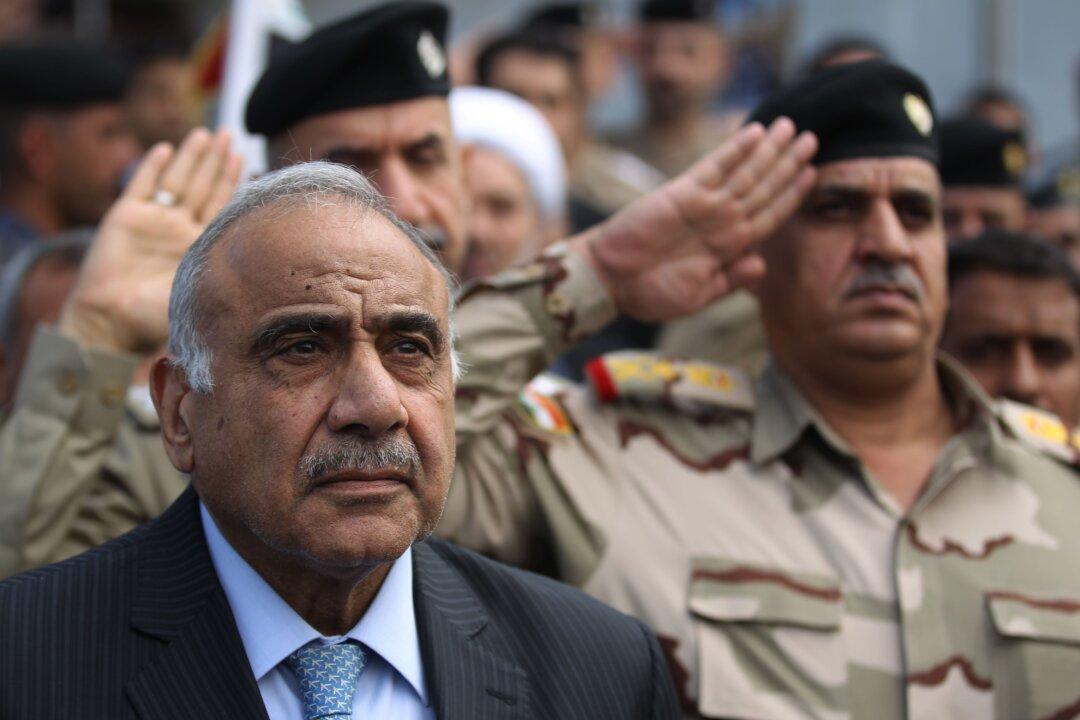BAGHDAD—After resigning last month, outgoing Iraqi Prime Minister Adel Abdul Mahdi on Monday condemned U.S. air strikes on bases of Iranian-backed militia in Iraq.
The U.S. military carried out air strikes on Sunday against the Kataib Hezbollah militia, which it considers a terrorist group, in response to the killing of a U.S. civilian contractor in a rocket attack on an Iraqi military base, officials said.





